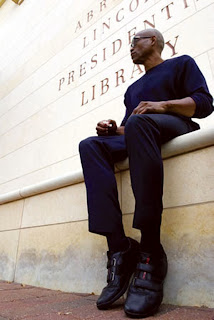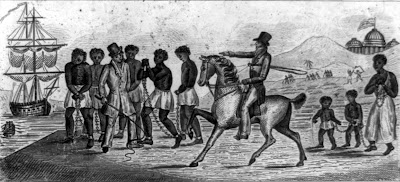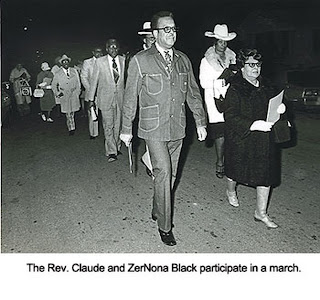Alternative voices: New university archives exhibit showcases recent finding of African-American newspapers, magazines
MANHATTAN -- African-American media have a rich history in the U.S. with specific coverage and a large readership. While the number of such media sources has declined considerably over the years, a recent discovery and an upcoming exhibit at Kansas State University will help demonstrate the important role played by African-American media.
The exhibit, "Alternative Voices: Black Media and the Communities They Serve," will launch with a panel discussion and formal event at 11 a.m. Friday, April 13, on the fifth floor of the university's Hale Library. The Dow Chemical Multicultural Resource Center in the library will host the event, which runs until 1 p.m. and is free and open to the public. The exhibit, in the department of special collections' reading room, runs through the end of the spring semester.
The exhibit is possible because of a recent discovery of African-American media materials collected by Robert Bontrager, a former interim head and faculty member of the department of journalism and mass communications, now the A.Q. Miller School of Journalism and Mass Communications. Bontrager collected materials from around the U.S. throughout the late 1960s and early 1970s. The material was often used in his course, The Black Press, which focused on African-American newspapers. Publications ranging from Essence to the Kansas City Call, an African-American weekly that has been published since 1919, are represented in the collection.
The materials were donated to the university archives, part of the Richard L.D. and Marjorie J. Morse department of special collections, in Hale Library.
"Cliff Hight, university archivist, called the collection a treasure trove," said Kimetris Baltrip, assistant professor of journalism and mass communications. "The challenges that face media that are dedicated to alternative voices make their survival more uncertain than that of traditional media. It is likely that much of the collection features media no longer in publication. It is always wonderful to have material evidence of the past."
With such a wide range of materials represented in the collection, the exhibit will feature a small selection of the publications. All materials from Bontrager's collection are currently available for researchers through the university archives.
Guest speaker for the panel discussion will be Lewis Diuguid, a columnist and editorial board member of the Kansas City Star. He has worked at the Star for more than 35 years and is a passionate voice in the Midwest for African-Americans, Baltrip said.
"Whether he is discussing education, politics or media, he is one of the most recognized black journalists in the Midwest region of the country," she said.
Also participating in the panel will be Melia Fritch, multicultural literacy librarian at Hale Library, and Cheryl Ragar, assistant professor of American ethnic studies. Fritch oversees the Dow Chemical Multicultural Resource Center. Ragar frequently conducts research into the African-American press.
Following the exhibit, the materials will remain with the university archives for future generations to research and examine. Baltrip calls Bontrager a forward thinker for assembling the collection.
"Because of his research and scholarly interests, he has enriched the historical collection of the university and reminded all of us of the importance of understanding and celebrating diversity in the media," Baltrip said. "I hope K-Staters will come out and support this historic find and learn about the role and contributions of African-American media and why Bontrager's collection is such a gift to the university."
Source: Kimetris Baltrip, 785-532-3596, kbaltrip@k-state.edu News tip: Kansas City, Mo. News release prepared by: Tyler Sharp, 785-532-2535, tmsharp@k-state.edu
News and Editorial Services. Kansas State University 128 Dole Hall Manhattan, KS 66506 785-532-2535, 785-532-7355 fax, media@k-state.edu






























